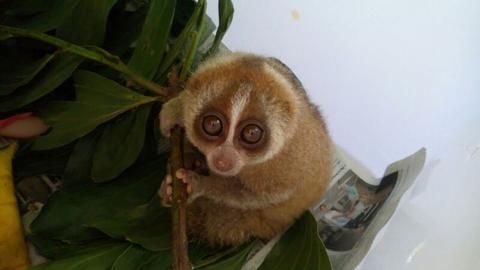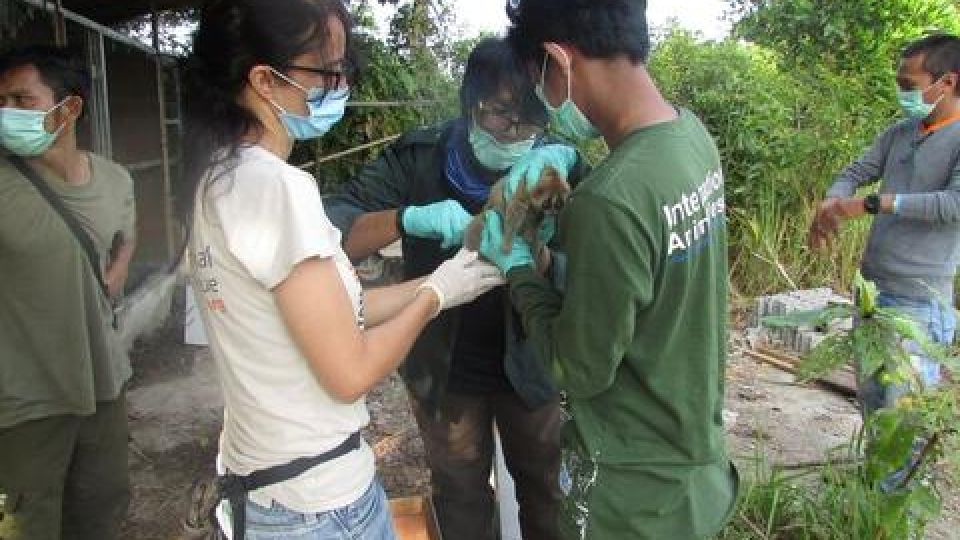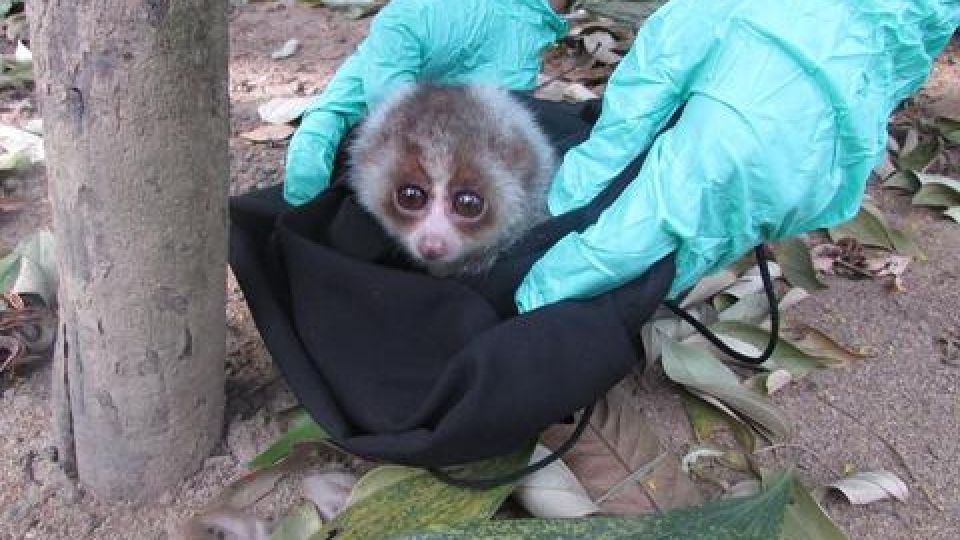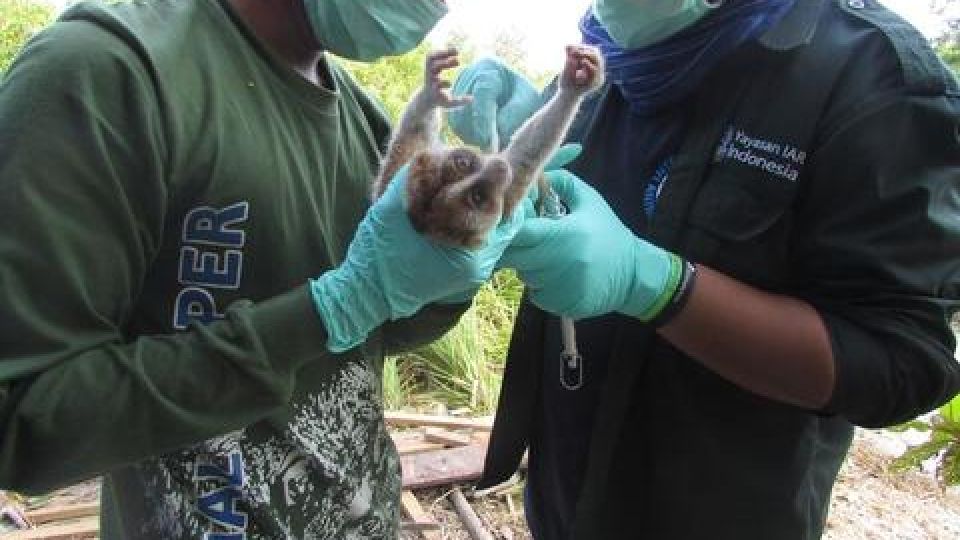
Forestry Police in Pontianak, West Kalimantan (Indonesian Borneo) recently arrested two slow loris traders and confiscated four slow lorises.
This is the first time the Indonesian authorities have ever taken legal action against anyone for being in possession of a slow loris.
The arrests followed a Slow Loris Conservation Workshop organised by IAR’s team in Indonesia on 20 May at the office of the Forestry Department in West Kalimantan.

The illegal owners were arrested during the exhibition of a Mini Zoo in Pontianak. The Forest Police Rapid Reaction Unit (SPORC) of the Natural Resources Conservation Centre (BKSDA) arrested two perpetrators identified only by their initials ED and IY and secured evidence of four slow lorises and a black backpack.
The investigation revealed that ED is chairman of ‘The Slow Loris Group of West Kalimantan’, while IY is a member of the group and acts as a seeker and seller of slow lorises to other members. They use social media to conduct their group trading activities.

The penalty for these illegal activities is imprisonment of five years and a maximum fine of Rp 100,000,000 (nearly £5,000). Currently the perpetrators are still being investigated in order to try to identify other illegal traders involved in the sale of the slow lorises.
Sadly, by the time they were seized, the canine teeth of the slow lorises had already been cut which makes it unlikely that they will ever be able to fend for themselves back in the wild.
After the arrest of the two individuals, realising that they too were in breach of the law, other members of the group came forward to hand over their lorises. To date four slow lorises have been handed in by other group members.
The rescued lorises are in the care of IAR’s team in West Kalimantan and housed at the IAR Rehabilitation Centre in Ketapang. They will be rehabilitated to restore the natural instincts and behaviour they will need to survive in the wild. IAR’s expert team from its Slow Loris Rehabilitation Centre in Bogor, West Java will assist with the primates’ rehabilitation.

IAR Indonesia Programme Director, Karmele L Sanchez said: “It takes a long time, considerable effort and great expense to restore the wild nature of slow lorises that have been kept in captivity by humans. The slow lorises will undergo a series of medical examinations, quarantine and a lengthy rehabilitation process before they can be released.”
Once they return to their natural habitat they will continue to be closely observed by members of IAR’s team to assess their progress in the wild after release. “But not all slow lorises can be released,” said Sanchez. “Traders in the market cut their teeth before selling them so they do not harm people. Lorises whose teeth have been cut cannot be returned to the forest because it would be difficult for them to forage and so sadly they will have to spend the rest of their lives in a cage.”

